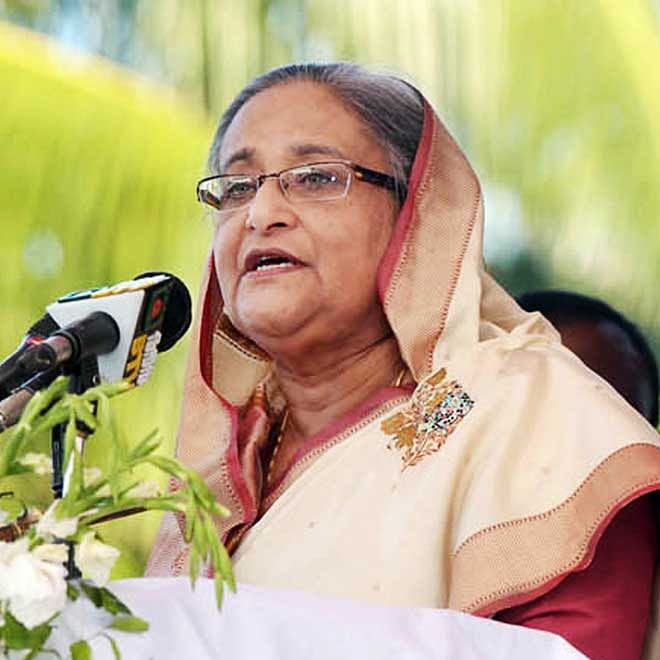PM blames Mamata for blocking Teesta deal

Prime Minister Sheikh Hasina today said the Teesta water sharing treaty between Bangladesh and India could not be signed due to an objection raised by West Bengal Chief Minister Mamata Banarjee.
"The framework agreement on sharing the water of the Teesta River had been finalised, and the deal couldn’t be inked due to an objection by Mamata Banarjee," she said in her introductory speech at a meeting with high officials of the water resources ministry at Bangladesh Secretariat.
But, Hasina said, the Indian central government was very much cordial to sign the treaty.
This is the first time the prime minister came up with the allegation against West Bengal Chief Minister Mamata Banarjee on Teesta water sharing issue.
The treaty was supposed to be inked during the visit of Indian Prime Minister Dr Manmohan Singh in 2011, but it did not happen as the chief minister refused to come to Dhaka with the Indian premier raising her objection to the treaty at the last minute of that visit.
The premier said the government is continuing its efforts to sign the Teesta Water Sharing Treaty with India, and hoped that it be inked soon.
Hasina said the negotiations on the issue with India are going on to have Bangladesh’s due share of the Teesta water.
"We had reached a consensus over the Teesta water sharing, but it was very much unfortunate that chief minister of an Indian State, Mamata Banarjee raised objection," Hasina said adding that her government is hopeful that the problem will be resolved through discussions.
Referring to the signing of the 30-year historic Ganges Water Treaty with the neighbouring country, she said the minimum water flow in the Ganges River has been ensured during the dry season since 1997 following the signing of the deal.
In the Ganges water sharing treaty, Hasina said, there is a decision of constructing Ganges Barrage by Bangladesh for preserving waters for the dry season and a study in this regard has already been completed.
But India as the upper-riparian country can control the flow of the water of joint rivers, and joint initiatives of the two countries are urgently needed to implement the project.
About the Tipaimukh project, Hasina said it has to be done after consultation with Bangladesh.
Water Resources Minister Anisul Islam Mahmud, among others, spoke on the occasion.

 For all latest news, follow The Daily Star's Google News channel.
For all latest news, follow The Daily Star's Google News channel. 



Comments